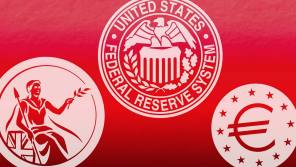

1. There is an opportunity for awareness-raising about pensions issues
The government will step-in to raise awareness around a particular issue where it is in the public interest. Cold calling has prompted government engagement, and the consultation says many believe that a media campaign should be launched to raise awareness.
A serious TV and radio campaign could raise awareness of the risk of pension fraud, but also prompt people to think about their pensions, to protect and value their savings, or distinguish between regulated advice and less trustworthy ‘advice’. This could be good news.
2. A media campaign is needed
It is worth the industry pressing for a proportionate solution. One option would be for providers to write to all customers to alert them to the ban and the risk of pension fraud. Government should look at whether providers could absorb that cost.
3. Cold calling won’t stop altogether
The government knows that it can’t rule-out cold calling altogether. And in fact the punishment for breaching the cold-calling ban will not result in criminal punishment. The government says that ultimately, the power to convict fraudsters already exists. But the new ban will make it easier to disrupt unscrupulous operators.
Plus authorities are powerless to tackle firms making cold-calls to UK customers from overseas. If the volume of cold-calling from the UK declines, you can expect it to increase from abroad.
4. Processes for overseas transfers aren’t set in stone
The government intends to impose a rule to limit transfers to personal pension schemes operated by firms authorised by the Financial Conduct Authority, Master Trust schemes and where genuine employment link to the receiving occupational pension scheme could be made. However, the government is still uncertain how it will deal with legitimate transfers to overseas pension schemes.
The government is planning to engage with the industry and other stakeholders on this issue over the course of the year.
5. Investments are not included
Only pension cold-calling will be banned, so unsolicited contact about other investment won’t be challenged.
Make sure your customers are aware that they may still be contacted about their other savings and investments and understand the risks involved.
6. If you’re concerned this may impact your own marketing efforts, speak now
Several respondents to the consultation, including some advisers, noted that not all pension cold-calling can be tarred with the same brush. While some are led by disreputable firms looking to target vulnerable individuals, some adviser firms will use them to generate business.
This is a fair criticism. Not all firms will generate client leads this way, but ultimately not enough people are aware that advice is available or know how to get it. Some people wouldn’t take advice on their pension unless a local adviser approached them directly.
The government says that it acknowledges this but worries that consumers struggle to differentiate between contact from a legitimate firm and a scam artist.
On balance, according to the DWP, out-lawing cold-calling altogether creates a much clearer line in the sand so it won’t be making any exemptions, it says. The government paper says ‘an important rationale for introducing a ban is that consumers will know that no legitimate firm will cold call them.’
This will impact some financial advisers who use cold calling to generate business leads. Exemptions for legitimate business relationships will be proposed in draft legislation and financial advisers should monitor the detail of the changes closely.
However, it will not prevent firms from issuing pension related marketing materials to the public, via traditional or social media routes.
Jon Greer is head of retirement policy at Old Mutual Wealth



